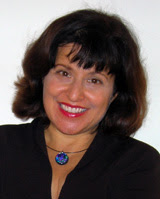In grammar school, I had the standard number of friends. In high school, my goal was to have as many friends as possible. The proof that I achieved my aim came the day I was elected “Pep Club President.” This was strictly a popularity contest and I had won it!
Soon enough I discovered that having a large cadre of friends meant that I wasn’t really close to any one of them. I didn’t even really like some of them. Still, I was proud of the large numbers and did my best to circulate my attention to keep each alliance satisfied.
College is where I found my “true” friends. These were kindred spirits—we were dedicated to God and to each other. Now, in retrospect, I know that my interactions weren’t the healthiest for me. I was prone to ignore my own basic needs and repress what I was actually feeling. Nevertheless, I remember these days with fondness. There was probably little real intimacy but I felt very close and secure. My fiancé and I were in a heartfelt community.
After my divorce, this “community” evaporated around me. In the confusion of my youth, I hadn’t shared my struggles with most of my friends and they didn’t understand my actions. After the divorce, I struggled alone, surrounded by shards of psychological debris. I moved to California on a quest for a new self. I also spent the next ten years making and losing friendships.
It was easy to make friends on the West Coast—many of the ex-hippies I met were quite comfortable with emotional intimacy and I was thrilled by the spontaneous sharing of strangers. Unfortunately I discovered that, in this land of expatriates and vagabonds, familiarity was easy but perseverance was less common. My new friends didn’t have the same expectations. In their transient world, what was most important was to “love the one you’re with.”
After ten years, I moved back to the Midwest. I was astounded to discover that some of my old friends were still devoted to our bond. But each of us had changed greatly. What followed were our awkward attempts to bridge the gaps between us. We had to rediscover who each of us had become and negotiate our differences.
I find friendships to be a vexing problem. My hopes always run high and then I am either scared or disappointed (or both) by what I find. Granted, my standards are also quite high. To paraphrase Kahil Gibran, I don’t seek friends with “time to kill” but with “time to live,” that is, if I can’t go to a deeply intimate (and safe) emotional place with a girlfriend, I’m not that interested.
There are so many hurdles to friendships today. When we get perturbed, it is too easy to retreat to our comfy homes, tvs, and computers. It also seems to me that after a certain age adults become more prickly and more prone to wonder deep inside: “what’s in this for me?” We are much more armored and able to protect ourselves from truly revealing the child beneath our façade. And, of course, we are all so “busy.” Given these obstacles, can adults ever hope to find new friendships that rival the life-giving bonds of our youth?
Laura Lewis-Barr is a writer, speaker, and trainer. She has taught and consulted at colleges in California and Illinois since 1991. For information on training or having Laura speak at your event, contact Laura at lauralewisbarr at Yahoo address.
©Lewis-Barr 2007. Please include entire contact information if reprinting this article.
Friday, December 28, 2007
Friendship Hunger
Labels:
emotional intimacy
Subscribe to:
Post Comments (Atom)


No comments:
Post a Comment